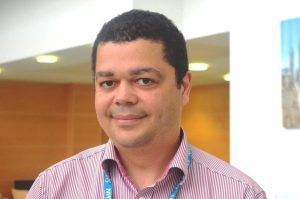
Mr Kenny Rankin
Newcastle Upon Tyne University Hospitals
Awarded: £149,839
The challenge
Surgery and radiotherapy are the key treatments for most soft tissue sarcomas. After completing treatment, patients are followed up for 5-10 years to monitor for spread of the sarcoma into the lungs. But surveillance strategies have not been well-researched. This means current guidelines are based on expert opinion, rather than evidence. Follow-up strategies also differ between different centres. Most patients have a chest X-ray every 6 months. But patients at other centres might have a CT scan every 3 months. At the moment, we don’t know which one is best.
Why do researchers want to explore this?
On the surface, being assessed more regularly sounds like the best outcome. It means that any recurrence will be spotted quicker. CT scans are also more effective at spotting smaller lesions (areas of abnormal tissue) than chest X rays. This type of monitoring can provide reassurance to patients and clinicians. But, more intensive surveillance is expensive. One study showed that five year surveillance for a case of high grade sarcomas cost $20,000. It’s also tricky for patients, as they may have to regularly travel and take time off work. There are also concerns over unnecessary radiation exposure through lots of CT scans. So this trial will help show how to balance earlier detection with cost and exposure to excessive radiation.
How will the clinical trial be run?
The SAFETY trial is being run from McMaster University in Canada. It is open already in multiple centres in Europe and America. The funding from Sarcoma UK will allow 120 patients in the UK to take part too.
Participants in the study will be randomly allocated to one of four different treatments over a 2 year period.
- CT scans every 3 months
- CT scans every 6 months
- Chest X Rays every 3 months
- Chest X Rays every 6 months
The team plan to explore how effective these different options are, in terms of improved survival, any complications, and how it affects overall quality of life for patients.
What this means for people affected by sarcoma
Earlier detection of a sarcoma coming back or spreading may improve survival, but to date no study has definitively proved this. This trial will provide the evidence to ensure that patient care and follow-up is as effective as it can be, based on high quality evidence. This project will ensure that people in the UK can also participate in this important research.
This project is our 2022-23 Roger Wilson Research Award.
Sarcoma UK awards this to one clinical research project every year, in honour of our founder, Roger Wilson.












